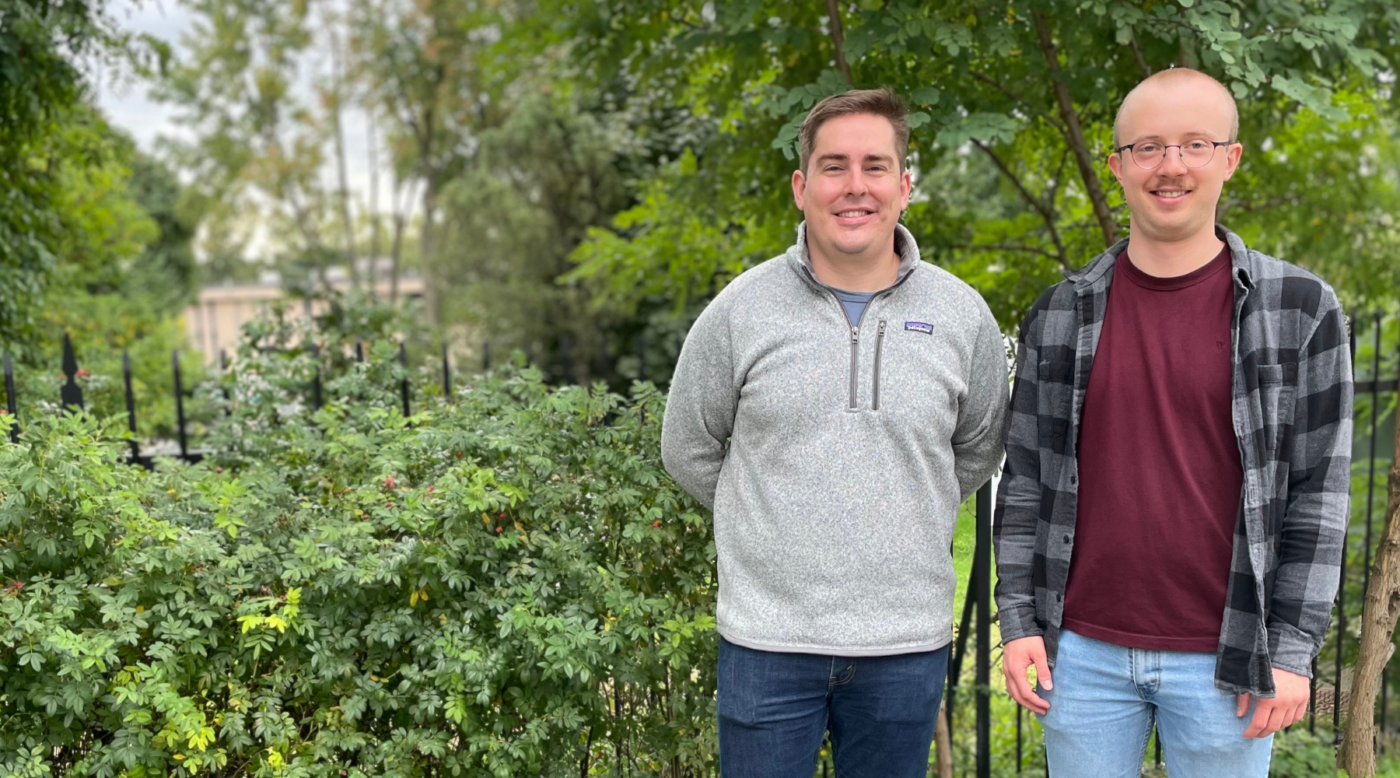News
Two students determined to walk for leukemia
Published on October 2, 2024
The annual Light The Night walks, organized by the Leukemia & Lymphoma Society of Canada, brings together the blood cancer community across the country. The event raises funds for research on 137 types of blood cancers. Students Ryan Borotra and Tyler Lussier have mobilized a team for IRIC, and will be supporting the cause during the Montreal Light The Night walk on October 26. Meet these two committed representatives of the next generation.
What is your role at IRIC?
Ryan Borotra (R. B.) : I’m a second-year Master’s student, co- supervised in Delphine Bouilly’s and Brian Wilhelm’s labs. I’m working to develop a graphene-based immunosensor for the detection of acute myeloid leukemia (AML).
Tyler Lussier (T. L.): I’m a second-year PhD student in Brian Wilhelm’s lab. As part of my project, I’m studying resistance to AML treatments.
Why did you set up an IRIC team for the Light The Night walk?
(R. B.) : The main reason behind our involvement is to show our support for people with AML. We also want to rally our community around an important cause. Some of IRIC’s research groups, notably the Bouilly and Wilhelm laboratories, have already taken part in Light The Night. We hope to renew this commitment by mobilizing as many members of the Institute as possible.
(T. L.) : It’s essential for us, as scientists, to take part in this type of event, to keep in mind the concrete impact of our work and the reality of the sick people who rely on our discoveries.
Why is public engagement important for research?
(R. B.): Research is financed largely by public money. Support from the population is therefore essential to the continuation of research work in laboratories. Public participation also makes more people aware of the importance of research and energizes our ecosystem.
(T. L.): Research is an essential driver for innovation. Scientific discoveries, particularly in health, lead to treatments that save lives and improve the quality of life of the Canadian population. Although research projects arise from ideas, they have the potential to have major impacts on our society.
Do initiatives like yours have a concrete impact on research?
(R.B.): Yes. Our involvement with Light The Night will raise funds for the Leukemia & Lymphoma Society of Canada, which funds research projects on blood cancers across the country, including at IRIC.
(T. L.): The Society also offers information and support to people affected by these illnesses, which can make a big difference for them and their families.
What are your aspirations for the future?
(R. B.): I am passionate about transforming scientific research into concrete solutions to improve healthcare. My goal is to develop innovative tools and contribute to their commercialization. I want to combine my scientific background and my investment experience to support promising projects, while developing my own initiatives through entrepreneurship.
(T. L.): I am not sure of my future aspirations, but for the moment I am focusing on my research work with the aim of helping children and people suffering from leukemia. I always want to keep this goal in mind in my professional future, wherever it takes me. At the same time, I am involved in our student association as newly elected president to offer moments of cohesion and support to our peers.
Finally, do you have a wish for cancer research?
(R. B.): I want us to develop tools and technologies capable of detecting cancers at an early stage and treating them more effectively. I am particularly motivated by the idea of supporting research that transforms scientific discoveries into concrete solutions for patients.
(T. L.): I hope that more treatments will be available to prolong and improve the quality of life for as many people with cancer as possible, which requires continuous improvement in our fundamental knowledge of this group of diseases.
